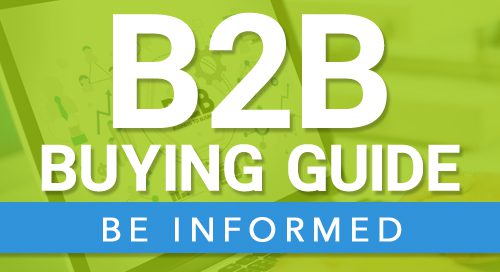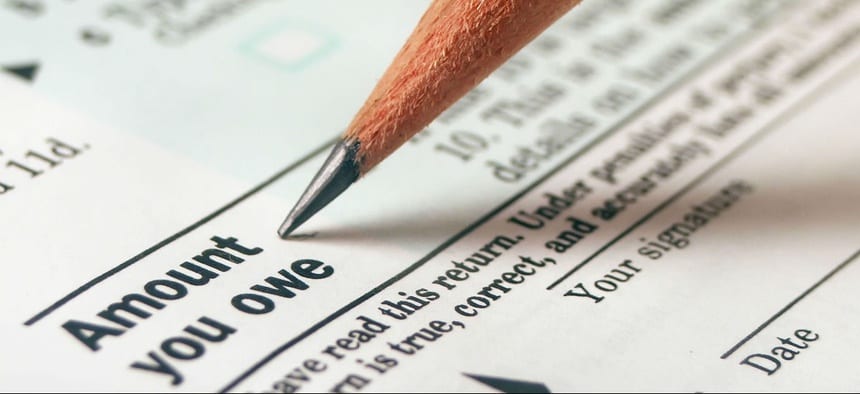
Consumer vs. Commercial Debt Collection: What’s the Difference?
Debt collection plays a vital role in the financial health of businesses, but not all debt is handled the same way. There is a significant difference between consumer debt collection and commercial debt collection, and understanding these differences is crucial for both creditors and debtors.
As a Georgetown University graduate with a degree in Business Administration, I have spent the past 15 years running a successful debt collection agency in Texas. Through my work with Side By Side Reviews, I help businesses and individuals navigate the complexities of debt recovery while ensuring compliance with the laws and best practices in the industry.
If you are trying to recover unpaid debts, whether from an individual or another business, it’s important to understand how consumer and commercial debt collection differ. This knowledge will help you choose the right approach and avoid potential legal pitfalls.
What Is Consumer Debt Collection?
Consumer debt collection refers to the process of collecting debts owed by individual consumers. These debts typically stem from personal loans, medical bills, credit cards, auto loans, and other financial obligations incurred by individuals rather than businesses.
Characteristics of Consumer Debt
- The debtor is an individual, not a business entity.
- Debt often results from personal expenses, such as credit card usage, medical services, or retail purchases.
- Collection efforts must comply with strict federal and state regulations, particularly the Fair Debt Collection Practices Act (FDCPA).
Laws and Regulations Governing Consumer Debt Collection
Consumer debt collection is heavily regulated to protect individuals from unfair or abusive collection practices. The FDCPA outlines rules that collection agencies must follow, including:
- Restrictions on Contact Times – Collectors cannot call consumers before 8 AM or after 9 PM.
- Prohibition of Harassment – Threats, intimidation, and deceptive practices are illegal.
- Validation of Debt – Collectors must provide written notice of the debt, including the amount owed and the creditor’s details.
- Right to Dispute – Consumers can challenge a debt and request verification before making payments.
Because of these regulations, consumer debt collection requires a careful and legally compliant approach. Failure to follow these guidelines can result in fines and lawsuits.

What Is Commercial Debt Collection?
Commercial debt collection, also known as business-to-business (B2B) debt collection, involves recovering money owed by one business to another. These debts often arise from unpaid invoices, outstanding loans, or contractual agreements between businesses.
Characteristics of Commercial Debt
- The debtor is a business entity, not an individual.
- The debt is usually tied to business transactions, such as unpaid vendor invoices, service agreements, or lease payments.
- There are fewer legal restrictions compared to consumer debt collection, though businesses must still follow ethical practices.
Laws and Regulations Governing Commercial Debt Collection
Unlike consumer debt collection, commercial debt collection is not covered by the FDCPA. However, businesses must still adhere to contract law and state-specific collection laws. Some key points include:
- Businesses can negotiate debt settlements without the same legal constraints imposed on consumer collections.
- While harassment and deception are still illegal, collectors have more flexibility in contacting business debtors.
- In many cases, commercial debt collection agencies charge contingency fees, meaning they only get paid if they successfully recover the debt.
Because commercial debts tend to be larger and more complex, collection efforts often involve legal action, asset investigations, and negotiations between corporate representatives.

Key Differences Between Consumer and Commercial Debt Collection
Who Owes the Debt?
- Consumer debt involves individuals with personal financial obligations.
- Commercial debt involves businesses that owe money to vendors, lenders, or service providers.
Legal Protections
- Consumer debt collection is highly regulated under the FDCPA and other consumer protection laws.
- Commercial debt collection has fewer restrictions, allowing for more flexibility in negotiation and recovery tactics.
Collection Approach
- Consumer debt collection typically involves demand letters, phone calls, and credit reporting as pressure tactics.
- Commercial debt collection often includes contract enforcement, legal action, and business negotiations.
Impact on Credit
- Consumer debt can affect an individual’s personal credit score and ability to secure loans.
- Commercial debt can impact a business’s credit rating, supplier relationships, and financial stability.
Debt Recovery Timeline
- Consumer debt collection often follows a structured process due to legal requirements.
- Commercial debt collection may take longer and involve litigation, especially for large debts.

When to Hire a Debt Collection Agency
Whether dealing with consumer or commercial debt, creditors often reach a point where they need professional assistance.
Signs You Need a Consumer Debt Collection Agency
- The debtor has stopped responding to calls, emails, or letters.
- The unpaid debt has exceeded 90 days and remains unresolved.
- You lack the legal knowledge or resources to navigate FDCPA regulations.
- The individual has moved, changed contact information, or is avoiding communication.
Signs You Need a Commercial Debt Collection Agency
- The debtor company is ignoring payment demands or disputing the amount owed.
- Your business is experiencing cash flow issues due to unpaid invoices.
- The debtor has a history of late or missed payments.
- The debt is substantial, and legal action may be necessary.

Choosing the Right Debt Collection Strategy
Selecting the right approach for debt collection depends on the nature of the debt and the relationship between the creditor and debtor.
For consumer debt, businesses should prioritize legal compliance, patience, and ethical collection methods to avoid legal trouble.
For commercial debt, companies should focus on negotiation, contractual enforcement, and legal recourse when necessary.
In both cases, working with an experienced debt collection agency can maximize recovery rates while maintaining professionalism.
Final Thoughts
Understanding the difference between consumer and commercial debt collection is essential for any business looking to recover unpaid debts efficiently. Consumer debt collection requires compliance with strict regulations designed to protect individuals, while commercial debt collection offers more flexibility but requires strategic negotiation and contract enforcement.
If your business is struggling with unpaid debts, choosing the right collection approach is critical. Knowing when to hire a professional debt collection agency can help you recover money faster, legally, and with minimal disruption to your business operations.
About the Author
Timothy Lions is a Georgetown University graduate with a Bachelor of Business Administration. As a writer and editor for Side By Side Reviews and the owner of a successful debt collection agency in Texas for 15 years, Timothy specializes in consumer and commercial debt recovery, credit risk management, and financial compliance.
Author: Hudson Piccini
Hudson Cynar, a Harvard University alumna and the owner of three prosperous enterprises, is a distinguished business consultant, author, and writer. Her expertise spans multiple business sectors, with a particular emphasis on storage containers, commercial copiers, payroll services, and medical billing software. Dedicatedly investing thousands of hours into product and service research, Hudson crafts insightful reviews to guide entrepreneurs in making informed decisions for their businesses.
